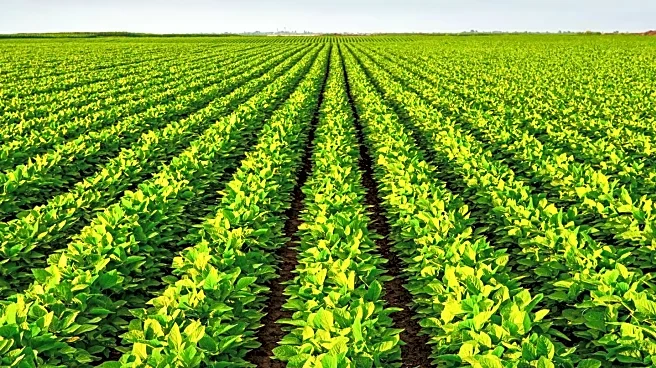What is the story about?
What's Happening?
Foraging for wild foods is experiencing a resurgence as individuals seek to reconnect with nature and explore sustainable practices. Iris Phoebe Weaver, a herbalist and foraging instructor from Portsmouth, New Hampshire, exemplifies this trend by incorporating dandelion flowers into her culinary creations, such as a dandelion aperitif. The practice of foraging, which predates agricultural tools developed 12,000 years ago, is gaining popularity as people share their experiences on social media and participate in training sessions to learn safe and sustainable methods. The renewed interest in foraging is driven by various motivations, including budget-consciousness, environmental mindfulness, and creative expression. Foragers can find wild foods in diverse environments, from urban landscapes to forests, provided they have the necessary permissions or permits.
Why It's Important?
The revival of foraging practices holds significant implications for local communities and the environment. By encouraging sustainable food sourcing, foraging can reduce the environmental footprint associated with traditional agriculture and food production. It also fosters community engagement and education, as individuals learn about local ecosystems and biodiversity. The trend is supported by chefs who incorporate foraged ingredients into their menus, offering patrons unique culinary experiences and promoting local food sources. Additionally, foraging provides an accessible hobby that can be pursued in various settings, contributing to personal well-being and a deeper connection with nature.
What's Next?
As interest in foraging continues to grow, more educational programs and workshops are likely to emerge, providing opportunities for individuals to learn about safe and sustainable practices. The trend may also influence the culinary industry, with more restaurants incorporating foraged ingredients into their offerings. Advocacy for foraging-friendly policies and maps highlighting free foraging locations may further support the practice. Stakeholders, including environmental groups and local governments, may engage in discussions to balance foraging activities with conservation efforts, ensuring the protection of natural habitats while promoting sustainable food sourcing.
Beyond the Headlines
The resurgence of foraging practices may lead to broader cultural shifts, as individuals seek to reconnect with traditional food sourcing methods and challenge modern agricultural norms. Ethical considerations regarding land access and the impact of foraging on ecosystems may arise, prompting discussions on responsible practices. The trend also highlights the potential for foraging to serve as a tool for environmental education, fostering a deeper understanding of local flora and fauna. Long-term, the practice could contribute to a more sustainable food system, reducing reliance on industrial agriculture and promoting biodiversity.

















